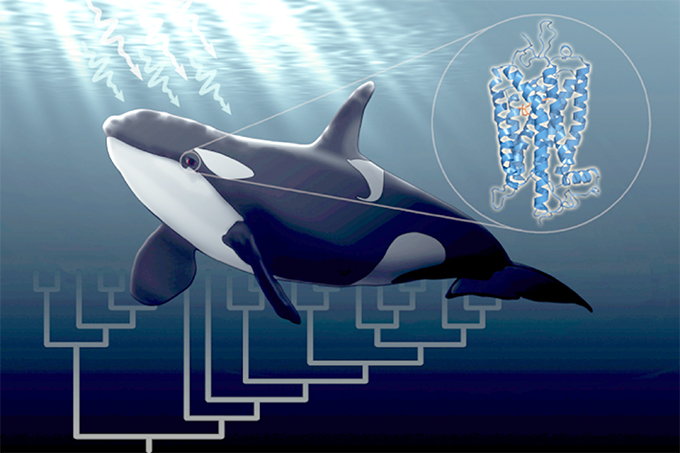Shedding light on the evolution of whale vision
Whales and dolphins have mutations in a vision gene that improve sensitivity to underwater light, demonstrating adaptive evolution through natural selection

Sarah Dungan, PhD candidate and lead author of the paper elaborates: “Rhodopsin is a light-sensitive protein in the rod cells of your eyes that allows you to see even in dark conditions. Whales are particularly reliant on rhodopsin because light fades very quickly with depth underwater. But the majority of light in the ocean is also blue, so if you’re a deep diver like a sperm whale, having rhodopsin more sensitive in the blue part of the spectrum allows your eyes to make the most use of the scarce light hundreds of meters below the surface. This could mean the difference between catching your prey or going hungry.”
- Sarah is a PhD student in Belinda Chang’s lab
- See Full Press release (pdf)
- Publication:
Dungan, Sarah Z., Alexander Kosyakov, and Belinda SW Chang. “Spectral tuning of killer whale (Orcinus orca) rhodopsin: Evidence for positive selection and functional adaptation in a cetacean visual pigment.” Molecular biology and evolution (2015): msv217.
